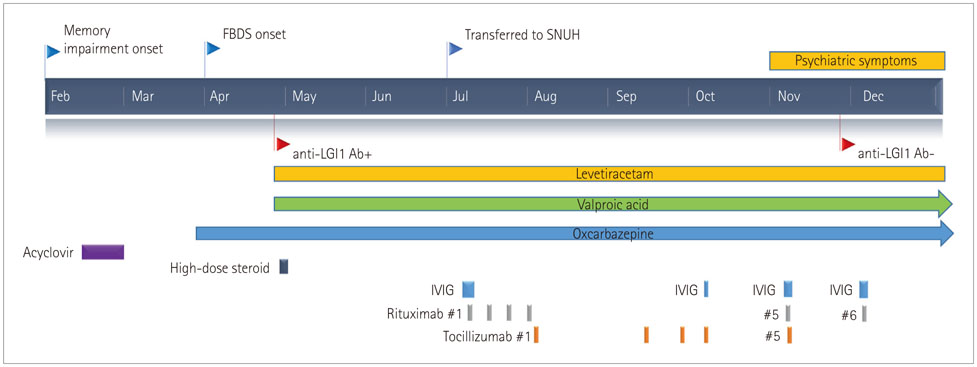J Clin Neurol.
2018 Jul;14(3):413-414. 10.3988/jcn.2018.14.3.413.
A Psychiatric Side Effect of Levetiracetam Can Mimic a Relapse of Anti-Leucine-Rich Glioma Inactivated 1 Encephalitis
- Affiliations
-
- 1Department of Neurology, Seoul National University Hospital, Seoul, Korea. slee@snuh.org
- KMID: 2415061
- DOI: http://doi.org/10.3988/jcn.2018.14.3.413
Abstract
- No abstract available.
MeSH Terms
Figure
Reference
-
1. Pickrell WO, Lacey AS, Thomas RH, Lyons RA, Smith PE, Rees MI. Trends in the first antiepileptic drug prescribed for epilepsy between 2000 and 2010. Seizure. 2014; 23:77–80.
Article2. Liu X, Carney PR, Bussing R, Segal R, Cottler LB, Winterstein AG. Trends in antiepileptic drug use in children and adolescents with epilepsy. Pediatr Neurol. 2017; 74:32–40.
Article3. Harden C. Safety profile of levetiracetam. Epilepsia. 2001; 42:Suppl 4. 36–39.
Article4. Mula M, Trimble MR, Yuen A, Liu RS, Sander JW. Psychiatric adverse events during levetiracetam therapy. Neurology. 2003; 61:704–706.
Article
- Full Text Links
- Actions
-
Cited
- CITED
-
- Close
- Share
- Similar articles
-
- Leucine-rich, Glioma Inactivated 1 Antibody-related Limbic Encephalitis Presenting as Recurrent Complex Partial Seizures
- Anti-LGI-1 Encephalitis with Worsening Symptoms Associated with Hyponatremia
- Anti-LGI1 Antibody Limbic Encephalitis Associated with Hepatocellular Carcinoma
- Reversible Bilateral Striatal Hypermetabolism in a Patient with Leucine-Rich Glioma Inactivated-1 Encephalitis
- Anti-LGI1 Antibody Encephalitis Mimicking Jumping Stump Syndrome


